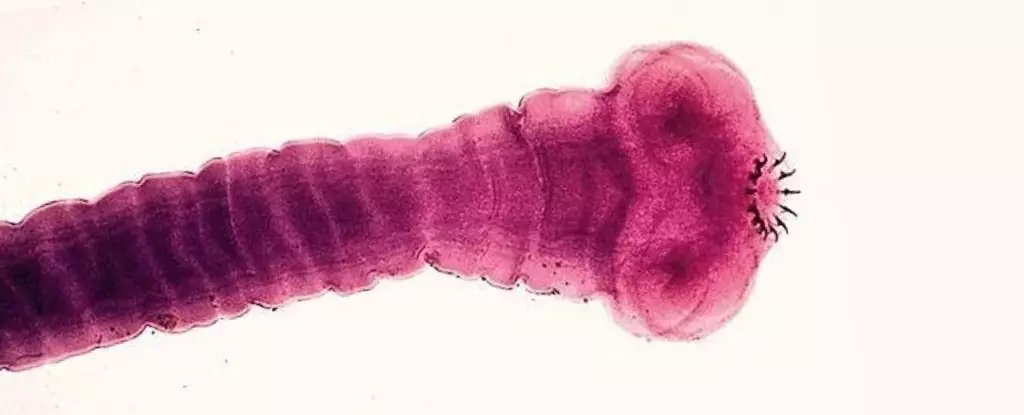Recently, a 52-year-old Florida man sought medical attention due to worsening migraines that had been troubling him for the past four months. Upon further investigation using a CT scan, doctors concluded that the man’s severe headaches were a result of multiple cysts scattered throughout his brain. Subsequent blood tests confirmed that these cysts were larval cysts of the pork tapeworm, leading to a diagnosis of neurocysticercosis. This case study sheds light on the risks associated with the consumption of undercooked pork and the potential consequences it can have on one’s health.
The source of the man’s infection posed a mystery to infectious disease experts, as the patient claimed he had not traveled to any regions known for a higher risk of exposure to infected pork or contaminated food and water. While neurocysticercosis is rare in the United States, typically being linked to travel to countries with poor sanitation, the man’s admission of enjoying lightly-cooked bacon raised concerns. It was suggested that his habit of consuming undercooked pork led to taeniasis, a condition caused by a tapeworm infection, which could have facilitated the transmission of cysticercosis.
The authors of the case report speculate that the man’s cysticercosis may have been transmitted through autoinfection following improper handwashing hygiene. Taeniasis occurs when individuals ingest undercooked pork containing larvae cysts, while cysticercosis results from ingesting eggs found in the feces of infected individuals. In this case, it is believed that the man contracted taeniasis from consuming undercooked pork and subsequently ingested tapeworm eggs from his own fecal matter, leading to the development of brain cysts.
Symptoms and Treatment
Neurocysticercosis can have severe implications beyond migraines, with a significant percentage of cases experiencing seizures. Depending on the location of the cysts within the brain, symptoms can vary from mild to severe, including focal neurological deficits, increased intracranial pressure, and cognitive decline. In this instance, the patient was treated with anti-parasitic and anti-inflammatory medications, which resulted in the clearance of the brain cysts and alleviation of his headaches.
The case study raises concerns about the potential public health implications of infected pork within the United States. While encountering infected pork is historically uncommon in the US, this case serves as a reminder of the risks associated with consuming undercooked pork products. Proper food handling and hygiene practices, including thorough handwashing, are essential in preventing the transmission of parasites like the pork tapeworm.
The case study of the Florida man with neurocysticercosis highlights the dangers of consuming undercooked pork and the potential consequences it can have on one’s health. It underscores the importance of proper food safety practices to minimize the risk of parasitic infections and serves as a cautionary tale for individuals who enjoy consuming pork products.

Leave a Reply